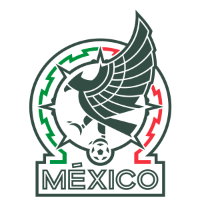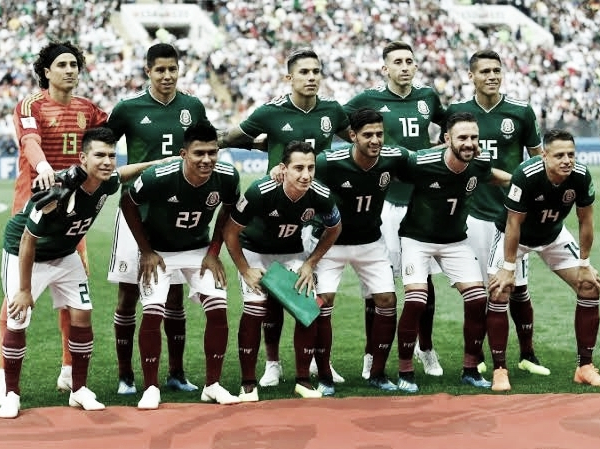
México

1922 México
Mexico's national men's soccer team, affectionately known as "El Tri" due to the three colors of its flag, is one of the dominant powers of the Confederation of North, Central American and Caribbean Association Football (CONCACAF). With a rich history dating back to its first World Cup appearance in 1930, Mexico has been a pillar on the international stage, known for its passion, technique and a fervent fan base, both nationally and worldwide.
The formative years and first World Cup appearances (1923-1970):
The early history of Mexico's national soccer team is a chronicle of effort, learning and a gradual rise to recognition on the international stage. From the founding of the Mexican Football Federation in 1927, Mexico embarked on a journey that would take it from humble origins to become a dominant force in the CONCACAF region and a respected competitor on the world stage.
Foundation and first international steps
The creation of the Federación Mexicana de Fútbol was a crucial milestone that marked the formal beginning of organized soccer in Mexico. This body was not only responsible for structuring soccer at national level, but also opened the door to Mexico's international participation. The invitation to the 1930 World Cup in Uruguay represented Mexico's first participation in a FIFA tournament, setting a precedent for future participation in international competitions.
The first World Cups
Mexico's start at the World Cup was full of challenges. The national team struggled to get past the first rounds in the 1930, 1950, 1954, 1958, 1962 and 1970 tournaments. Despite these modest results, each participation offered valuable lessons and experiences that contributed to the team's growth and development. These early years on the world stage were key to identifying areas for improvement and starting to build a solid foundation that would underpin the future success of Mexican soccer.
Establishing itself as a leader in CONCACAF
Alongside their efforts at the World Cup, Mexico began to assert their dominance in the CONCACAF region. With victories in regional competitions, Mexico not only consolidated its position as a leader in North and Central America, but also gained confidence and experience in international competitions. This regional dominance has been a key component in the development of Mexican soccer, providing a platform to compete regularly and test themselves against international teams.
Building an infrastructure for success
Recognizing the importance of a solid infrastructure for soccer development, the Mexican Football Federation and other related entities began investing in player training, improving sports facilities and professionalizing the national league. These efforts not only improved the quality of soccer at club level, but also ensured a steady flow of talent for the national team. The creation of soccer academies and youth training programs was an important step in establishing a system that could nurture and develop future generations of Mexican footballers.
Modern era and consistency at the World Cup (1990-present)
Since the 1990s, Mexico's national soccer team has been a constant presence at the World Cup, demonstrating remarkable consistency in qualifying for each edition of the tournament. This period has witnessed the evolution of Mexican soccer, marked by the development of talents who have achieved international recognition and the establishment of intense rivalries, particularly with the United States.
Notable World Cup participations
USA 1994: Mexico reached the round of 16, where they were eliminated by Bulgaria on penalties. This tournament marked the start of a series of consecutive World Cup qualifiers.
France 1998: Once again, Mexico reached the round of 16, facing Germany. Despite a courageous performance, Mexico were eliminated, but left a lasting impression with their style of play and determination.
Korea/Japan 2002 and Germany 2006: In both tournaments, Mexico kept up the pattern of reaching the knockout stage, but ran into the "fifth game" barrier, being eliminated in the round of 16 by the United States and Argentina respectively.
South Africa 2010 and Brazil 2014: In these editions, Mexico continued the trend of qualifying beyond the group stage, but were eliminated early in the round of 16, reinforcing the narrative of the "fifth game" as a psychological and tactical barrier.
Emergence of talent in European leagues
The modern era has seen an increasing number of Mexican players excel at European clubs, raising the profile of Mexican soccer globally. The likes of Hugo Sánchez, Rafael Márquez, Javier "Chicharito" Hernández and, more recently, Hirving "Chucky" Lozano and Raúl Jiménez, have had successful careers in Europe, demonstrating the quality and potential of Mexican soccer talent.
Achievements in international competitions
1999 FIFA Confederations Cup: Mexico won this tournament, played at home, beating Brazil in the final. This triumph is one of Mexican soccer's most significant achievements on the international stage.
Olympic gold in 2012: The victory at the London 2012 Olympic Games, in which Mexico beat Brazil in the final, was a historic milestone, demonstrating Mexico's ability to compete and succeed in high-level international tournaments.
(2018-Present)
Despite consistent qualification and participation in World Cups, the persistent challenge of overcoming the "fifth game" has led to a renewed focus on developing young talent and implementing new tactical strategies. Coach Gerardo "Tata" Martino has concentrated on combining international experience with a new vision, seeking to overcome the historical barriers that have limited Mexico's progress in the most prestigious tournaments.
Investment in soccer academies, the scouting of national and international talent and the implementation of a style of play that adapts to both the traditional strengths of Mexican soccer and the demands of modern soccer are the pillars of this new era. With the emergence of promising young players and the experience accumulated in previous campaigns, Mexico looks to the future with the hope of reaching new milestones and establishing itself as an even more dominant force on the world soccer stage.








































